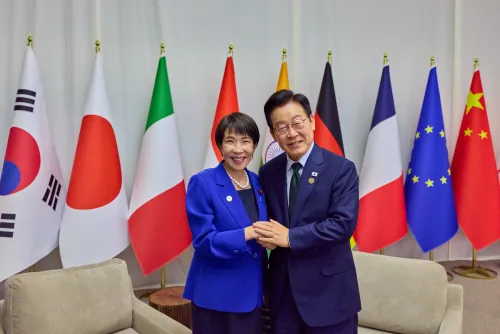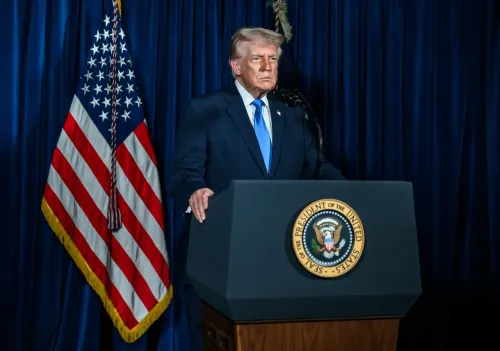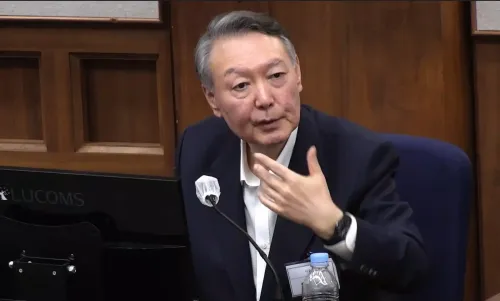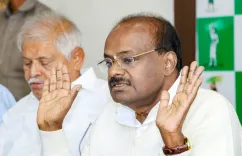How is Kyrgyzstan's FM Kulubaev Advocating for Stronger Regional Ties?
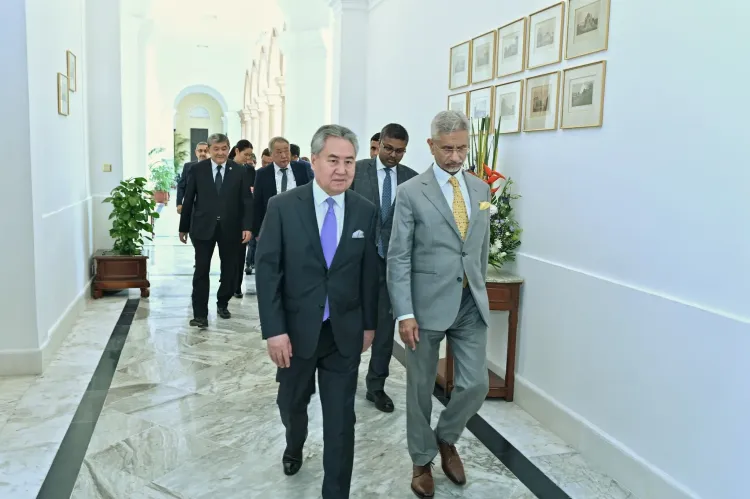
Synopsis
Key Takeaways
- Strengthening regional interconnectedness through direct flights and transport infrastructure.
- Emphasis on security collaboration and addressing the situation in Afghanistan.
- Promotion of cultural and academic exchanges to enhance public diplomacy.
- Concrete proposals for logistics and transport development among Central Asian states.
- Signed Cooperation Programme between Kyrgyzstan and India for future collaboration.
Bishkek/New Delhi, June 6 (NationPress) Kyrgyzstan's Minister of Foreign Affairs, Jeenbek Kulubaev, on Friday highlighted the necessity of enhancing the interconnectedness among regional states during the 4th meeting of the India-Central Asia Dialogue held in New Delhi. He stressed the significance of establishing direct flights and improving transport infrastructure.
In his address, Kulubaev detailed pivotal areas for collaboration among the Dialogue participants, focusing on interconnectedness, regional security, and advancements in technology and development.
"The necessity of promoting financial inclusion, boosting collaboration within the 'green' agenda, and leveraging new technologies alongside digitalization in mutually beneficial domains was underlined. Furthermore, the commitment to addressing regional security concerns through both bilateral and multilateral channels was reaffirmed," a statement from Kyrgyzstan's Foreign Ministry indicated.
To implement the proposed initiatives, the Kyrgyz delegation recommended establishing dialogue mechanisms among relevant ministries and departments of the Dialogue's member countries.
"The attendees presented concrete suggestions to enhance cooperation, such as developing transport and logistics interconnectivity, initiating joint infrastructure projects, and forming pertinent working groups. There was also a keen interest in expanding academic and cultural exchanges to reinforce public diplomacy," the statement elaborated.
Particular emphasis was given to the situation in Afghanistan, recognized by participants as a crucial element for regional stability. The discussion highlighted the need for humanitarian and advisory support for Afghanistan's integration into both regional and international frameworks.
The meeting also touched on plans for the Second Summit of the India-Central Asia Dialogue, with participants agreeing to coordinate its timing through diplomatic channels.
All delegations acknowledged the practical orientation of the initiatives discussed and expressed their commitment to strengthening cooperation within this framework.
A Joint Statement from the 4th Ministerial Meeting of the Central Asia-India Dialogue was subsequently adopted.
Earlier that day, External Affairs Minister S. Jaishankar convened the Foreign Ministers from Kazakhstan, Kyrgyz Republic, Tajikistan, Turkmenistan, and Uzbekistan for the Dialogue.
On Thursday, Kulubaev engaged in a bilateral discussion with EAM Jaishankar, during which both sides acknowledged the fruitful development of ties between India and Kyrgyzstan under their strategic partnership.
The dialogue included a thorough review of the current status of bilateral relations, focusing on enhancing political dialogue, fostering inter-parliamentary cooperation, and persisting with high-level visit exchanges.
"Key areas for collaboration in security, healthcare, and trade were deliberated, emphasizing their long-term significance for both nations. The parties noted positive trends in trade turnover and committed to further expanding cooperation in sectors like pharmaceuticals, mining, information and communication technologies, and banking services.
"The ministers underscored the considerable impact of the Indian ITEC and PRIDE programs on developing human potential in Kyrgyzstan and reinforcing cultural and humanitarian ties. As part of public diplomacy, the commitment to continue creating favorable conditions for Indian students' residence and education in Kyrgyzstan was reiterated," the Kyrgyz Foreign Ministry stated.
A Cooperation Programme was signed between the Foreign Ministries of Kyrgyzstan and India for 2025–2027, outlining key areas and priorities for future collaborative efforts.


